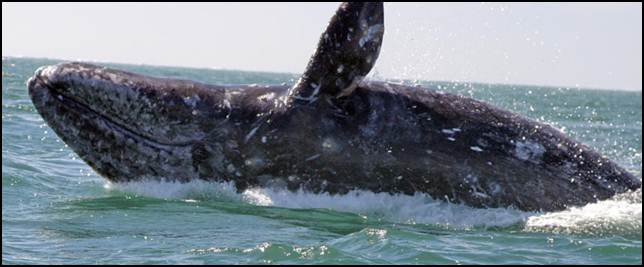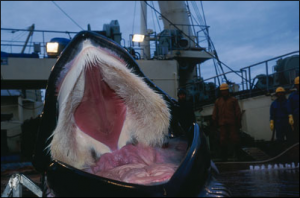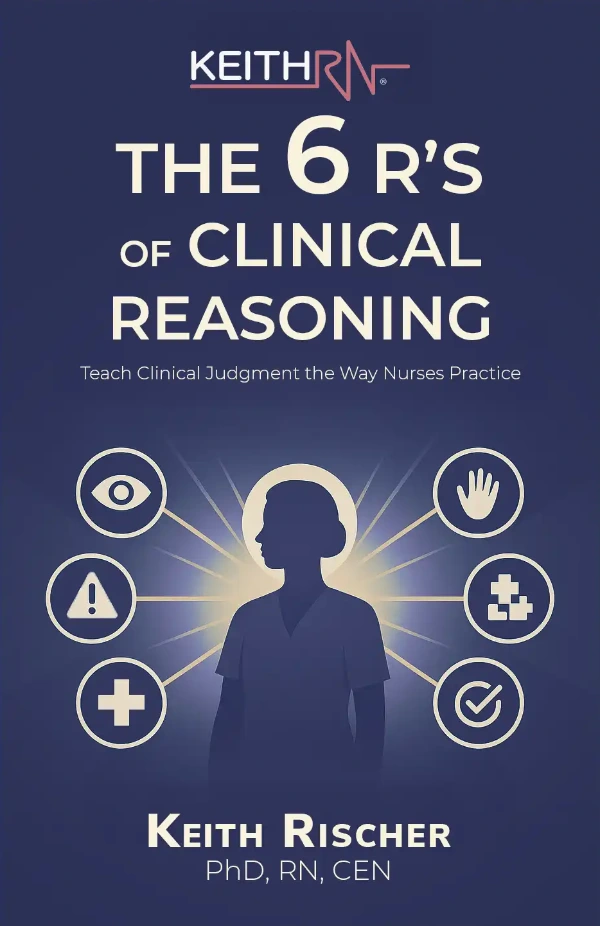
When I recently completed a NCLEX® review program, I asked these graduate nurses, “Looking back, what was your greatest struggle/frustration with nursing education?”
In a recent online survey of nurse educators, I asked the same question. Their responses are below.
Would it surprise you to know that both students and faculty are sinking in a content ocean of TMI (too much information) in nursing education?
In todays blog, I address why the grey whale is an apt metaphor and example to help nurse educators FILTER an ever growing tidal wave of content that is overwhelming students and impacting learning!
The Carnegie Foundation’s educational research presented in Educating Nurses: A Call for Radical Transformation identified that TMI (too much information) is one of many concerns that nursing education needs to address. Though this book came out over four years ago (2010) it appears that academia has been slow to make this needed transformational change based on the following responses:
Students Reply…TMI
o Information overload! Too many details without clear instruction on the critical data. Unrealistic reading expectations
o Too much info given to us. We will learn the rest in practice
o Too much information thrown at us and no idea where to focus on. I felt I learned bits and pieces about subjects all over the place and stead of really understanding anything!
o We were rushed covering the huge content in a small amount of time
o Overload of information/overwhelming
o We get so much information and thousands of pages to read. It is not possible to know it all!
Faculty Reply…TMI!
• There is so much information. Adequately covering the topic(s) under study
• Students who are overwhelmed by the work load
• Keeping the student workload meaningful without crushing the nursing student and faculty member
• Getting away from lecturing so much and trying to cover so much material.
• Content overload
• Volume of content
Lessons from a Grey Whale
When I presented a clinical reasoning workshop recently in Orange County, CA, I had an extra day to take in the sights, and spent a half day on the Pacific to catch a glimpse of the migrating grey whales.
a clinical reasoning workshop recently in Orange County, CA, I had an extra day to take in the sights, and spent a half day on the Pacific to catch a glimpse of the migrating grey whales.
The tour boat guide talked about how the grey whale feeds as they travel thousands of miles from Alaska to Mexico. I recognized that this example from nature illustrates a foundational principle of transformational change.
In order to feed, a grey whale opens its mouth widely and filters thousands of gallons of water with its baleen teeth that can be seen in this picture. It then partly shuts its mouth and keeps the small amount of food that is left to eat such as krill and plankton to provide needed energy for its continuous migration.
Transformational nurse educators can follow this example of the grey whale and do the following two-step approach to simplify and improve student learning:
Just as a grey whale FILTERS large amounts of water…as an educator you must FILTER the content in your textbook readings and classroom PowerPoints using
Just as a grey whale keeps the most important to eat…as an educator you decide what is kept…the NEED to know content!
Transformational Nurse Educator=FILTER
Remember that according to Benner’s novice to expert theory of professional progression, novice nurses (which is EVERY student in your program!) see EVERYTHING as relevant. They have no clinical context to filter and sort out what content is most important to bedside practice.
Regardless of how long you have been an educator, you are an experienced nurse who knows what aspects of nursing education are most important to practice. Be confident of what you do know. If you teach in a team, have this needed discussion and collaborate to decide what is NEED to know and NICE to know content.
Students are literally crying out to you as educators to do this! Listen to their responses from my informal survey and listen carefully to their voice and what they need from nurse educators to be successful:
Student Responses
o I wish they would make it known what is most important to focus on
o You should make it basic and teach what you really need to know
o Teach the most important topics to form a strong knowledge base
Many faculty also recognize the need to filter content to teach the most important.
Faculty Responses
• I need help in focusing on the “meat and potatoes” of the important points of body systems & specific diseases
• Simplifying the mass amounts of information into more concise references
Goal: DEEP learning of what is Most Important
The unfortunate end result of TMI in nursing education is that students acquire SKIN DEEP knowledge of a large amount of content, but not the DEEP LEARNING of what is most important! This impacts student ability to APPLY knowledge to the bedside because they will be unable to translate SKIN DEEP learning to real world clinical practice.
Here are a couple responses that make this reality painfully clear:
Student
o We are taught so many subjects and then none in depth
Faculty
• Too much content that ‘needs’ to be taught – not enough depth so the students end up not
retaining much
Be a Grey Whale!
As you prepare for the beginning of another school year in the Fall, put on your “baleen teeth” and filter everything you teach. By so doing, you will take a needed step to make transformational change realized. But more importantly, you will encourage the DEEP learning of your students. This will then translate to the bedside and promote better outcomes for the patients they will care for!
Discussion question:
What strategies have you found effective to filter content in your program? How did this impact student learning?See below to comment and let the discussion begin!
Pay it Forward!
I am only one person and I need your help! If you have appreciated my thoughts in this or any other blog post, please pay it forward by just a click of your mouse. FORWARD this blog to at least one colleague using the toolbar to Facebook, LinkedIn, or email. TOGETHER we can be the needed change to transform nursing education!
Keith Rischer – PhD, RN, CEN
As a nurse with over 35 years of experience who remained in practice as an educator, I’ve witnessed the gap between how nursing is taught and how it is practiced, and I decided to do something about it! Read more…
The Ultimate Solution to Develop Clinical Judgment Skills
KeithRN’s Think Like a Nurse Membership
Access exclusive active learning resources for faculty and students, including KeithRN Case Studies, making it your go-to resource.




